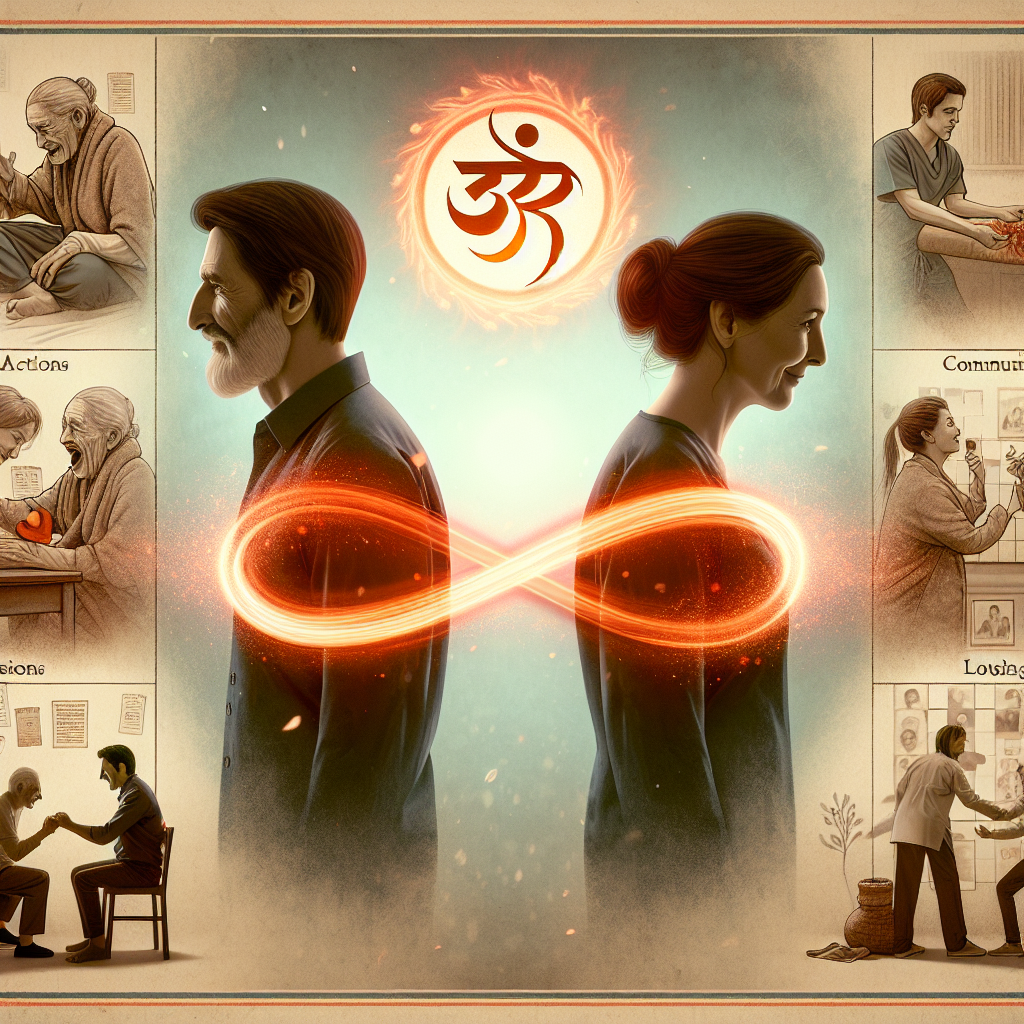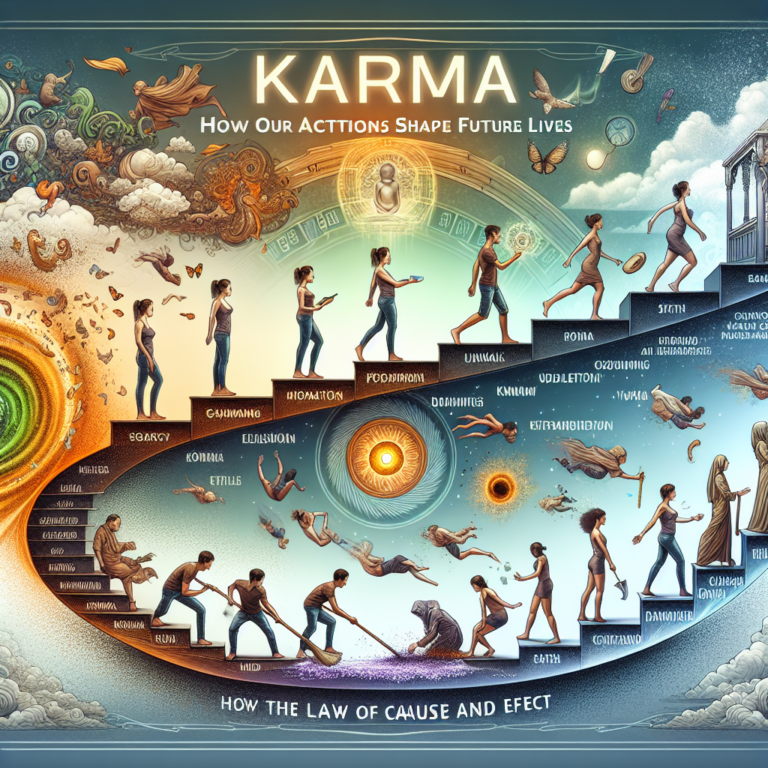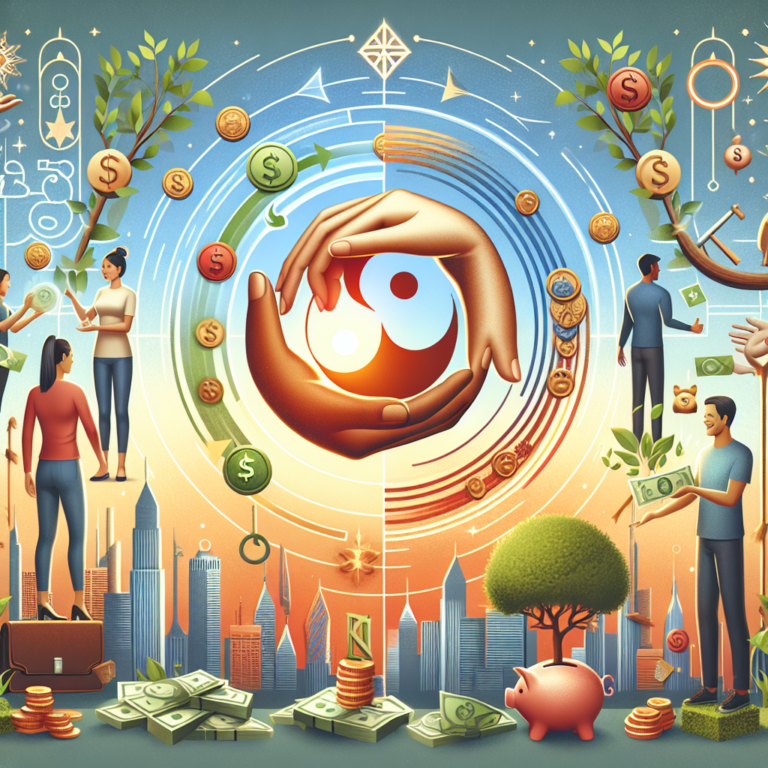Karma is a concept that has transcended cultural boundaries, often defined as the principle of cause and effect where our actions — good or bad — have a direct impact on our lives and the lives of others. This principle isn’t confined merely to individual experiences but extends into the realm of inter-personal relationships. As we navigate the complexities of our connections with others, it becomes evident that our past actions — whether they are our own or those of people we interact with — can shape our present and future. This article delves into the intricate web of karma as it relates to relationships, exploring how our past deeds, intentions, and choices influence our connections with others today.
Understanding Karma in Relationships
At its essence, karma refers to the idea that every action elicits a response, creating an ongoing cycle of effects. In relationships, this principle can manifest in various ways, such as trust, misunderstandings, and emotional bonds. When an individual treats others with kindness and respect, it fosters a positive environment that encourages mutual respect and harmony. Conversely, negative actions — such as betrayal, deceit, or indifference — can lead to breakdowns in trust and create toxic dynamics.
The Role of Intentions
Karma is significantly influenced by intentions. Actions driven by love, empathy, and understanding tend to build strong and resilient relationships. For example, if you consistently show support and understanding to your partner during tough times, it sets a precedent for open communication and emotional intimacy. On the other hand, if your past interactions are marred with insensitivity or resentment, these experiences may cause your partner to feel guarded and less willing to communicate openly.
The energy we emit through our intentions can also attract similar energies. People who embody positivity and nurturing traits are often drawn towards each other, creating circles of support and kindness. Conversely, those who embody negative traits may find themselves in unhealthy relationships filled with contention and misunderstanding.
Learning from Past Actions
Understanding how past actions influence current relationships leads to an important realization: we can learn and grow. Acknowledging past mistakes is crucial to personal development and improving relationships. For instance, if someone has a history of loud arguments or hurtful comments in previous relationships, recognizing this tendency is the first step towards change. It allows individuals to consciously adopt healthier communication styles and approach conflicts with empathy rather than hostility.
Additionally, past experiences may also shape one’s expectations and perceptions. If a person has been consistently let down in past relationships, they may approach new relationships with caution, expecting to be hurt or abandoned. This protective mechanism can create a self-fulfilling prophecy, resulting in missed opportunities for real connections. Thus, reflecting on how past actions influence current patterns can help someone to break the cycle of negativity.
Breaking the Cycle
Breaking the negative karma cycle requires a concerted effort in self-awareness and behavior modification. Forgiveness — both of oneself and others — is paramount. Understanding that everyone has imperfections and that mistakes are part of the human experience fosters an environment of compassion. It enables individuals to move forward without being anchored by the weight of past grievances.
In practice, breaking negative behavioral patterns may involve seeking therapy or counseling to work through unresolved issues. It can also include conscious efforts to engage in kindness, candidness, and transparency, actively instilling positive actions into one’s relationships.
Karma and Healing
In addition to breaking negative patterns, karma can play a vital role in healing relationships. When past actions lead to hurt or misunderstandings, taking ownership and actively working towards mending the miscommunication can pave the way for reconciliation. For example, if a friend feels neglected due to a person’s inconsistency, a heartfelt apology combined with actions that demonstrate commitment can repair the rift and restore trust.
Furthermore, some relationships may elucidate karmic lessons, meaning they have come into your life to teach you something important—perhaps about boundaries, forgiveness, or unconditional love. Recognizing these lessons allows individuals to grow and foster healthier interactions moving forward.
The Ripple Effect of Relationships
It’s worth mentioning that our relationships extend beyond interpersonal dynamics. They create a ripple effect that impacts others — be it friends, family, or acquaintances. When we engage in positive actions, they can inspire others to do the same, creating an uplifting community. Conversely, negative actions can propagate further harm, affecting not only individuals but larger groups and shared environments.
Conclusion
The connection between past actions and present relationships is profound and nuanced. Understanding how karma influences our interactions can give us insight into our behaviors, expectations, and emotional health. By recognizing the power of our actions and intentions, we can strive to create healthier, more fulfilling relationships, breaking free from negative cycles and embracing growth as individuals. Ultimately, cultivating positive relationships is not only beneficial for us but also has the potential to contribute to a more compassionate world.
FAQs
1. What is karma?
Karma is a philosophical and spiritual concept that suggests that every action has consequences, ultimately influencing one’s future experiences based on past actions.
2. How do past actions influence current relationships?
Past actions shape relationships through established trust, emotional responses, and learned behaviors. Positive past actions foster closeness, while negative actions can lead to distrust and emotional barriers.
3. Can karma affect relationships beyond individual interactions?
Yes, the effects of karma can extend beyond personal relationships. They can impact communal dynamics and influence the behavior of others within a wider social circle.
4. How can I break negative karma in relationships?
Breaking negative karma involves self-reflection, acknowledging past mistakes, learning from them, fostering forgiveness, and consciously practicing healthy behaviors in current relationships.
5. Is it possible for relationships to evolve with positive actions?
Absolutely. Positive actions such as empathy, consistency, and open communication can lead to growth, healing, and strengthened bonds in relationships over time.
6. Can past relationships teach me something valuable?
Yes, every relationship holds potential lessons that can contribute to personal growth. Understanding what worked, what didn’t, and why can help you in future interactions.
It seems like you may have intended to provide a specific prompt or topic. Please share what you’d like me to assist you with, and I’ll do my best to help!, #Karma #Connection #Actions #Shape #Relationships #Today, #Karma #Connection #Actions #Shape #Relationships #Today, 1734309246, the-karma-connection-how-past-actions-shape-your-relationships-today





